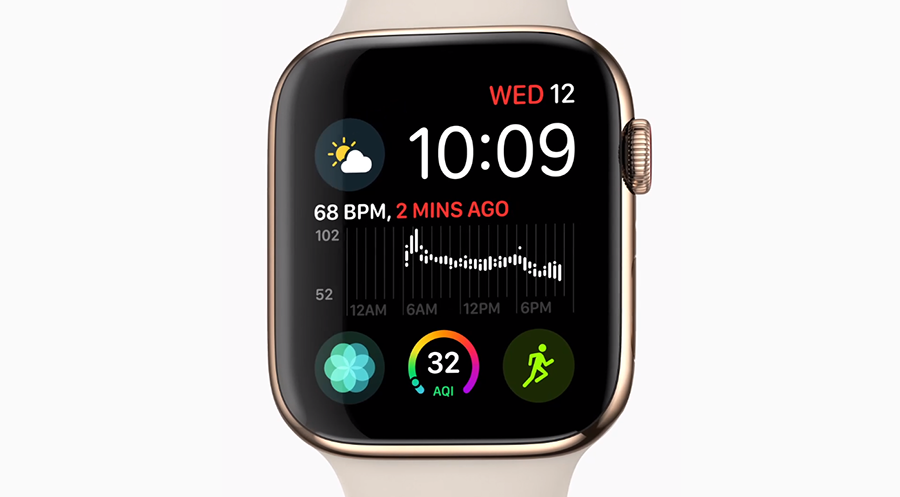The Apple Watch Series 4 includes a more advanced heart-monitoring technology called EKG or ECG (electrocardiogram). The FDA cleared this feature for commercial use and not for medical use. However, doctors are skeptical, and their biggest concern is that the feature hasn’t been meticulously tested and could deliver unreliable data, leading people to ask for unnecessary tests.
While there is validity to these concerns, healthcare professionals shouldn’t be too quick to disregard this feature, especially as Apple put the feature there due to growing consumer enthusiasm for health monitoring wearable devices, reports Harvard Business Review.
The ECG sensor isn’t the one on the back of the watch; that’s the one that tracks your heart. For ECG, you have to hold your finger on the new crown button on the side of the smartwatch. It’ll create an ECG, which is automatically saved as a PDF file so that you can send it to your doctor.
While the method is much simpler than one performed in a doctor’s office, it can be used to detect certain abnormal heart rhythms. The app us used to detect the most common for of arrhythmia, known as atrial fibrillation. Atrial fibrillation affects about 1% of Americans, mostly older adults, putting them at risk for complications such as stroke.
But atrial fibrillation has always been difficult to accurately detect with computer algorithms, and the ECG app is no exception. One study of the Apple Watch ECG showed that about one third of the ECG recordings it took were “noninterpretable” by the algorithm (i.e., the app couldn’t determine what type of heart rhythm was present), and when it was interpretable, the algorithm still made errors.

Related Apple Watch 4 Fall Detection Turned Off by Default, Here’s How to Turn it On
But, while doctors have the right to be concerned about wrong test results, the ECG app could benefit the healthcare industry in a big way. The sheer number of people who bought Apple Watches – an estimated 18 million in 2017 – could produce unprecedented data.
The most obvious benefit, according to Harvard Business Review, is that the watch may detect atrial fibrillation in patients not known to have the disease. For these patients, earlier treatment could reduce the risk of stroke.
ECGs collected from Apple Watches could also be used to study changes in the heart’s electrical activity in large numbers of patients who have other non-cardiac diseases, who live in certain areas, are taking specific medications, or who eat certain diets, and so on.
Stanford University is conducting Apple Heart Study, which is set to end in 2019. The study assesses data collected from older Apple Watch that detect heart rate but do not collect ECGs. For future studies, the newer Apple Watches could be used to collect ECG and learn more about patient health and thereby improve patient care, said the Harvard Business Review.









